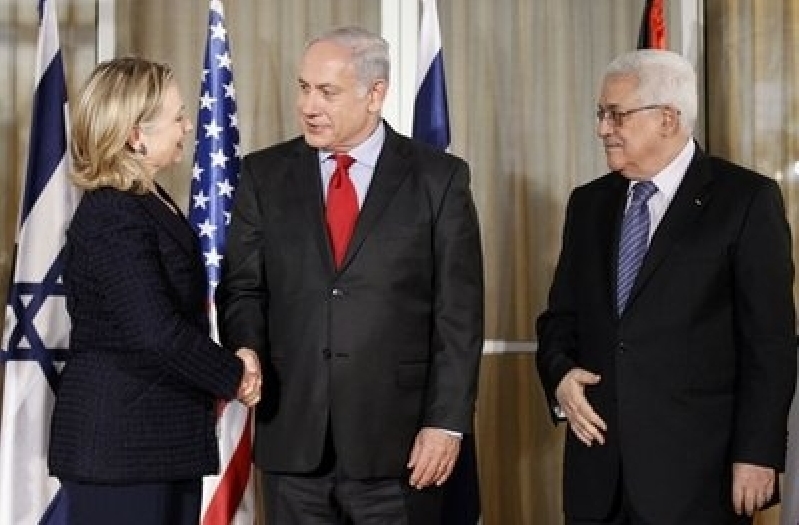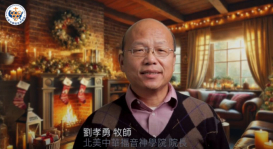
U.S. Secretary of State Hillary Clinton insisted Wednesday that the leaders of the State of Israel and the Palestinian Authority were “serious” about a peace deal, despite no visible evidence that the closed-door negotiations were going well.
“They are getting down to business and they have begun to grapple with the core issues that can only be resolved with face-to-face negotiations,” Clinton said Wednesday morning to reporters.
“I believe they are serious about reaching an agreement… This is the time and these are the leaders and the United States will stand by them as they make difficult decisions,” she added.
Israeli Prime Minister Benjamin Netanyahu and Palestinian leader Mahmud Abbas met in Jerusalem Wednesday with the aim of hammering out a peace deal before a partial moratorium on Israeli settlements in the West Bank expires in two weeks.
Abbas has threatened to abandon the talks if Israel does not agree to extending the settlement restriction. The Palestinian leader wants to extend the settlement freeze past the Sept. 26 deadline, but Netanyahu has suggested that at least some of the restrictions will be lifted. The Obama administration has supported extending the moratorium, but said that an agreement must be reached by the two parties.
Dispute over the ever-contentious Israeli settlements in the West Bank threatens to derail the fragile peace talks. The current series of Israeli-Palestinian peace talks, which began Sept. 2, is the first in nearly two years.
The Obama administration had managed to get Netanyahu and Abbas to agree to an initial round of negotiation in Washington at the talks’ commencement and to meet roughly every two weeks to try to reach an agreement.
Ahead of the Sept. 2 meeting, the head of the World Council of Churches weighed in, saying that any final negotiations on a two-state solution should involve the heads of local churches. The Rev. Dr. Olav Fykse Tveit, general secretary of WCC, said Palestinian Christians are worried they will be marginalized in the borders are redrawn.
“Any debate over the religious composition of a given state is an internal one,” Tveit said. “However, it should guarantee the principle of equality of all citizens in their rights and duties as human being.”
The WCC leader called for “just peace.”
Wednesday’s meeting in Jerusalem marked the third round of negotiations in the latest series. The day before, in Egypt, Secretary of State Clinton said the “time is ripe” for a Mideast peace deal.
Key issues in the negotiations are borders and the fate of Jewish settlements on land Palestinians want for a future state.



![[Exclusive Interview] A revelation within the brink of life and death — Meg Leung’s mission in Christian art](https://www.gospelherald.com/media/cache/thumbnail/7/21/72163sp_273w_150h_1x_1y.jpg)


